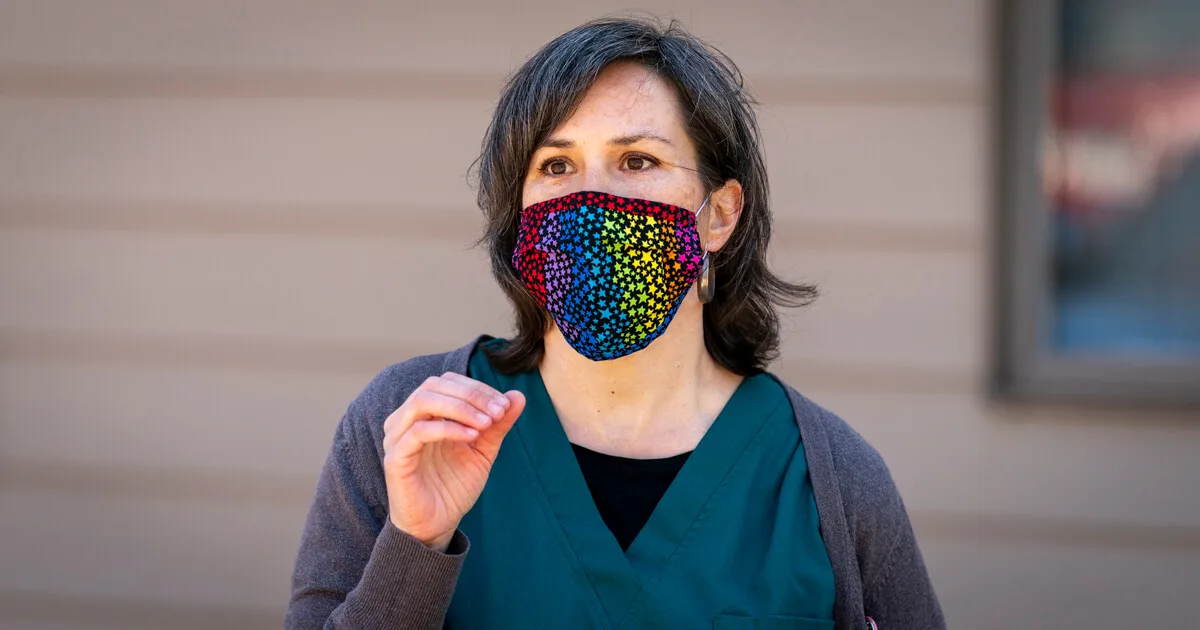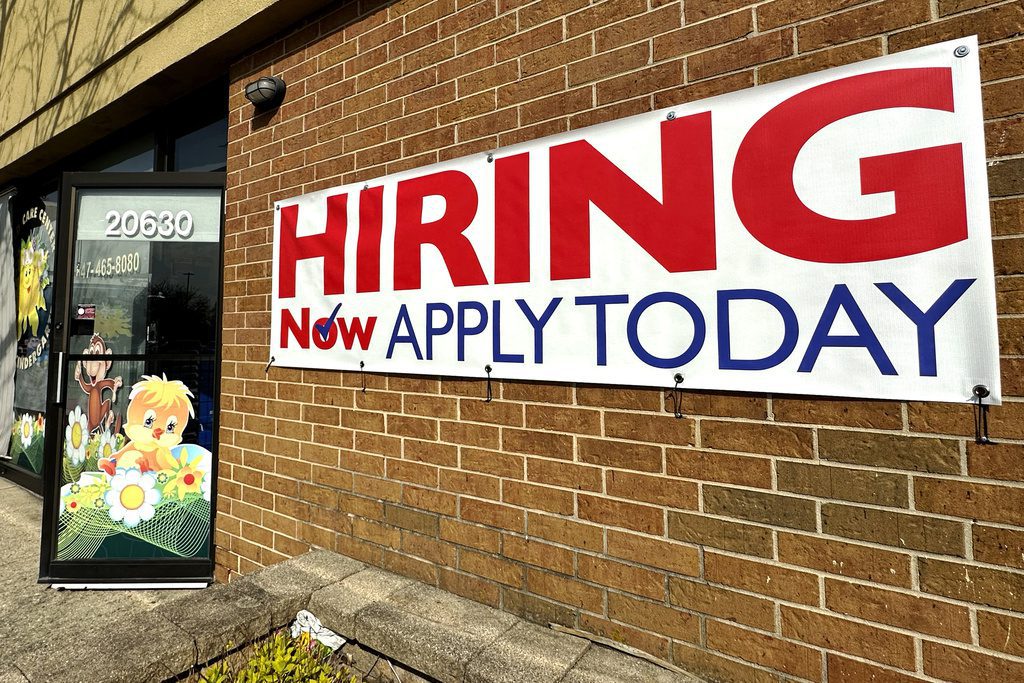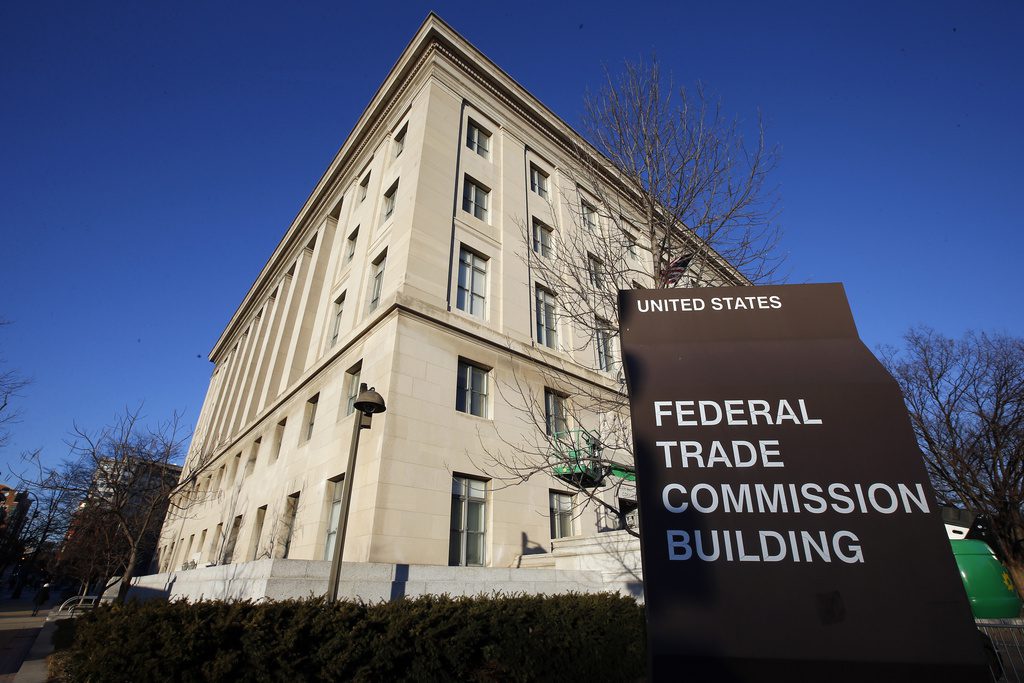
#image_title
#image_title
Undersupplied and facing health risks, they’re silent no longer.
When Elizabeth “Buffy” Riley left her home in northwest Wisconsin for New York City at the beginning of this month, she was determined to help her nursing colleagues halfway across the country treat patients stricken with COVID-19.
Riley did just that. For nearly three weeks straight, 12 hours a day, she worked in an intensive care unit of a Brooklyn hospital.
Despite the masks, face shields and other personal protective equipment they wore, Riley and others in the intensive care unit were exposed constantly to the virus. And protective equipment was reused from room to room.
While working Sunday, she began to feel sick. She developed a cough, fatigue, muscle pain and gastrointestinal discomfort, signs consistent with COVID-19.
Riley missed work Monday and Tuesday. On Wednesday she was sent home from the hospital because she was deemed too sick to work with patients. She flew home Thursday to her home in Hayward, where she will be tested for COVID-19 on Friday.
RELATED: Read stories about Buffy Riley’s experiences working with COVID-19 patients in New York – Part One, Part Two, Part Three, Part Four, Part Five
“My God, I hope I don’t have it,” Riley said. “I’ve seen too much of what it can do to a person, how it can kill. I don’t want any part of that.”
Saturday she found out she was positive for COVID-19.
Some 350 miles from the cabin in rural Hayward where Riley plans to self-quarantine for the next two weeks lives an intensive care unit nurse who works at a hospital in Milwaukee.
She has not worked in over a week. She tested negative for COVID-19 even though she was experiencing shortness of breath and feverish sweats. She was retested Wednesday. Thursday she received her second set of results; positive for a coronavirus but not COVID-19.
“I am definitely relieved,” said the nurse who preferred to remain anonymous in order to comply with the hospital’s policy instructing staff not to talk with the media. “Now my family can come home.”
Hundreds of healthcare workers in Wisconsin can relate to the anxieties and mounting fears these two nurses are experiencing as they wait for test results to tell them whether or not they have COVID-19. They know that reusing single-use masks or not having enough N95 masks for all workers puts them at a higher risk of contracting COVID-19.
Due to the inability or unwillingness of the federal and state government to take action by either insisting factories produce more masks or allocating money toward hospitals to purchase them, healthcare workers are getting sick.
At least 857 healthcare workers have tested positive for the virus as of Friday, according to the state Department of Health Services. That means roughly 16 percent of all positive cases are healthcare workers.
“Healthcare workers are using the equivalent of medical waste to protect themselves from this deadly and disabling disease,” said Ani Weaver, a registered nurse with a Madison healthcare facility. “This is shameful. We need PPE now.”
A vocal minority is now advocating for businesses to reopen and life to essentially return to normal. Yet frontline workers who have yet to stop working are still waiting to receive the supplies they need to do their job safely.
“I am here today with a message for our elected officials, especially President Trump and Vice President Mike Pence,” said Weaver who staged a one-woman protest to coincide with Pence’s visit to a GE plant in Madison Tuesday. “We can do better.”
Changing Rules
In an industry where incorrectly putting on or removing face masks, gowns and gloves leads to points off on tests or failing a clinical in nursing school, the shift to reuse single-use protective gear flies in the face of reason and the foundation of a healthcare worker’s training.
It also tells them they are not safe, even if the Centers for Disease Control approves the new, lax guidelines that have come out since the pandemic.
Administrators at some Wisconsin hospitals said they have adequate PPE, but others acknowledged they lack enough masks, gloves, gowns, and other gear to protect workers.
To stretch resources, nurses and other employees are told to wear masks for as long as a week at a time, administrators said. Tired of waiting for the federal government to provide supplies, many hospitals are buying them directly from manufacturers.
At SSMHeath Hospital in Madison, employees now enter through one of two entrances. Staff stand in a line. One by one, their foreheads are scanned to check for a fever. They are then asked if they have been in contact with anyone who has COVID-19.

If they are fever-free and have avoided contact with an infected person, they are given a round sticker for the day. Each day is a different color. The sticker indicates to others they have passed the screening process.
Employees then can ask for another mask. They have punch cards that tell screeners at the entrances whether or not they are eligible for another mask. Full-time staff is allowed two masks a week.
“I can go to work with a totally normal mindset but then a wave of anxiety comes over me as soon as that process begins,” said a nurse who works at SSMHealth and asked to remain anonymous due to fears of losing her job. “I get nervous. Am I going to test positive today? If not, I wonder if I will make it through until the next shift and stay negative.”
Katy Trottier is an emergency room nurse at Aurora Sheboygan Memorial Medical Center. She said her hospital erected two tents to triage incoming patients. The hospital is prepared for a surge but has yet to see one, which is a good thing, Trottier said.
To date, Sheboygan County has had 44 positive cases and two deaths, according to the state health department. She has seen and treated many of these patients. When asked if she has ever seen a medical situation like the current situation caused by the coronavirus she said, “No! Not ever.”
“I was around for H1N1 but it was completely different,” Trottier said. “I treated patients who were so sick with H1N1. I would be in a room with them for 12 hours. I would have an N95 and be gowned up the same way I am now. But it really wasn’t the situation it is now.”
Trottier said even though it took 18 months to develop a H1N1 vaccine, hospitals never experienced the influx of patients as they are now with the coronavirus.
“With H1N1 we never worried about having enough PPE. That wasn’t even a thing,” Trottier said. “It’s been a thing (with COVID-19). Even with my hospital system, which I think has done a great job preparing … I stillI have my N95 mask that I keep in a brown paper bag.”
Sen. Patty Schachtner, D-Somerset, said she has heard concerns about the shortage in her job as chief medical examiner of St. Croix County.
“There is a real need there, and we have to do something to address it,” Somerset said.
Statistics released by the Wisconsin Hospital Association site show a significant number of the state’s 133 hospitals lack a seven-day supply of supplies, with 64 hospitals in need of goggles, 44 hospitals in need of gowns and 43 hospitals in need of N95 masks, the single-use mask healthcare workers should be wearing when caring for COVID-positive patients.
The state has received multiple shipments from a national stockpile, but that has not been sufficient to meet the need.
“If there is one thing we need it is PPE,” said Andrea Palm, secretary of the state Department of Health Services during a recent call with reporters.
Politics of the Pandemic
The ongoing inability of Wisconsin lawmakers to work with the governor to to jointly address the COVID-19 crisis and provide any financial or additional supplies for frontline workers has not gone unnoticed.
“I have not seen any of our legislators in Wisconsin stand up and demand we be protected,” said a Madison nurse who asked to remain anonymous.
Instead, the Repubican-controlled Legislature has twice filed lawsuits against Democratic Gov. Tony Evers, first to stop his efforts to suspend the April 7 election and Tuesday to block the extension of the stay-at-home order until May 26. It was originally scheduled to end Friday.
On April 15, weeks after surrounding states passed legislation to financially address the crisis, Evers signed the state’s first COVID-19 relief bill. This followed weeks of Republicans refusing to call a session until after they knew how much money the state would receive from the federal government.
The brief bipartisan accomplishment soon was tarnished when a last-minute change was introduced by Assembly Speaker Robin Vos, R-Rochester.
Done at the request of Wisconsin Manufacturers & Commerce, Vos and Senate Majority Leader Scott Fitzgerald, R-Juneau, agreed to change an agreed-upon provision and no longer extend workers compensation to all frontline, essential workers.
Instead, the language shrunk frontline workers eligible for workers compensation to police, fire and healthcare workers who care directly for COVID-19 patients. Workers must also prove they contracted the virus while at work, a move frontline workers say shows complete disregard for their safety.
These same workers in Minnesota, Michigan and Illinois now receive workers compensation, no questions asked if they test positive, thanks to compromises reached between their legislatures and governors.
“In Wisconsin, you have people like Vos throwing in that last minute disclaimer,” said the registered nurse who works in Madison. “There is no way we can prove we got COVID from a patient. You’d have to go back and dig in somebody’s file and HIPPA won’t allow that.”
Trump invoked the Defense Production Act at the end of March to force General Motors to start producing ventilators to combat the COVID-19 virus. Nurses point to his inability to use the act to force a company to produce more masks as further proof their safety is not a priority.
“I don’t fund their campaigns. That’s the only thing that makes sense to me. This is all about money,” said the Madison nurse. “Getting PPE to frontline workers is not a priority for them.”
The need for more supplies comes after continued efforts by governors, including Evers, of many U.S. states trying to obtain more protective materials for personnel at hospitals, nursing homes and elsewhere.
Some governors have criticized Trump for his administration’s inability to deliver more personal protective equipment. Trump, in turn, has called governors “complainers”and then denied they were seeking his help. Some states have reported losing out on bids for masks and other supplies to the federal government, which said it is stockpiling them to get them to areas of greatest need.
Rep. Robyn Vining, D-Wauwatosa, is working on legislation called the Healthcare Heroes Act that would pay for more PPE, along with fully-paid sick leave, hazard pay and healthcare coverage.
However, Vining said funding could come from federal money Wisconsin will receive to address COVID-19-related issues.
“They are taking incredible risks to do the very important work they are doing,” said Vining. “They are putting their lives on the line. We need to find a way to protect them.”
In the political environment in Wisconsin, it is questionable how much traction her efforts receive from the Republican-side of the aisle. Details remain to be worked out and Republican leadership in the Assembly and Senate have not shown a willingness to fund those measures.
“President Trump, Vice President Pence and all those who have treated this situation like a political battlefield, please put your differences aside,” Weaver said. “Do what is right for both the economy and health of our community.”
Politics

Biden administration bans noncompete clauses for workers
The Federal Trade Commission (FTC) voted on Tuesday to ban noncompete agreements—those pesky clauses that employers often force their workers to...

Opinion: Trump, GOP fail January 6 truth test
In this op-ed, Milwaukee resident Terry Hansen reflects on the events that took place on January 6, the response from Trump and other GOP members,...
Local News

Readers Poll: Top Bowling Alleys in Wisconsin
Looking for the best bowling in Wisconsin? Look no further! Our readers have spoken in our recent poll, and we have the inside scoop on the top...

8 Wisconsin restaurants Top Chef judges are raving about
Top Chef’s 21st season is all about Wisconsin, and on-screen, it’s already apparent that the judges feel right at home here. But, while filming in...



